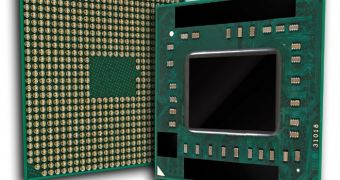The Computex 2012 trade show may not be scheduled to take place for another week or so, but the preparations are mostly over, and that includes product testing on the part of government officials, academics, research analysts, editors-in-chief (of key media outlets) and industry experts.
The Taipei Computer Association is one of the main powers behind the Computex Taipei event and has already looked at the products that will be showcased there.
What we mean by that is that executive reviews have been conducted by the officials, analysts, editors-in-chief and academics mentioned above.
Advanced Micro Devices is happy to announce that its A-Series Accelerated Processing Units (APUs) came out on top, earning the Best Choice award.
"We are honored to receive this prestigious award from the Taipei Computer Association for the second consecutive year," said Chris Cloran, corporate vice president, AMD Client Products.
"The overwhelming market reception and industry accolades for the AMD A-Series APUs demonstrate that AMD is uniquely meeting the needs of our customers and a new generation of PC buyers."
Some reviewers initially said that Trinity weren't really mind-blowing compared to Intel's CPUs, but later on that turned out to be more bias than fact.
The decision of the Taipei Computer Association could be taken as an extra point in favor of the glowing reception APUs have been basking in ever since the newest A-Series showed up.
Compared to Llano, Trinity have 29% better productivity and up to 56% higher graphics performance, all the while allowing laptops to live for up to 12 hours on a single battery charge.
Certainly, hardware configurations will have a great say in how close to that maximum life a laptop gets, but the point stands that energy efficiency is higher than ever.
Finally, AMD has at last straightened out that confusion caused by apparently inconsistent transistor counts in Bulldozer and A-Series APUs. It was (for the most part) a number difference caused by a change in the method used to count the transistors, so people can stop crying foul.

 14 DAY TRIAL //
14 DAY TRIAL //